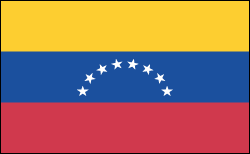Venezuela History


The Hugo Chavez Era Begins
Leftist president Hugo Chavez took office in 1999, pledging political and economic reforms to give the poor a greater share of the country's oil wealth. A constituent assembly was formed to rewrite the constitution in July 1999, followed by the creation of a constitutional assembly made up of Chavez's allies that replaced the democratically elected Congress. Chavez's assumption of greater power prompted charges that he is establishing a left-wing dictatorship.
Chavez was reelected to a six-year term in July 2000. Troops were called in to quell serious protests over the election in several cities. In 2000 Chavez visited other OPEC countries, becoming the first foreign head of state to visit Iraq since the 1991 Gulf War. He is close to President Fidel Castro of Cuba, which receives Venezuelan oil at reduced prices.
In Dec. 2001, business and labor organizations held a work stoppage to protest Chavez's increasingly authoritarian government. In April 2002, tensions reached a boiling point as workers reduced oil production to protest Chavez's policies. Following a massive anti-Chavez demonstration during which 12 people were killed, a coalition of business and military leaders forced Chavez from power. But international criticism of the coup, especially in Latin America, and an outpouring of support from the president's followers returned Chavez to power just two days later. After the coup, Chavez remained highly popular among the poor, despite the desperate state of the economy. Venezuelan labor unions, business organizations, the media, and a good part of the military remained substantially less enchanted.







